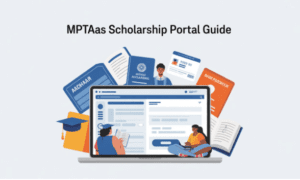IQ is a measurement of intelligence that determines the capability of a person to use their potential. It results from mental abilities, such as reasoning, learning, and memory. IQ is used to compare how well an individual has developed in comparison to others.
What is Mensa?
Mensa is an international non-profit organization for people with an approved intelligence score of 98 percentile or higher. Its members are those with IQs in the top 2% of the population. The members of Mensa have a wide range of occupations and educational backgrounds.
With a simple vision, Mensa has provided a stimulating intellectual environment where people from all backgrounds and walks of life can gather, share ideas, and pursue their passions. The society was founded in 1946 by Roland Berrill and Lancelot Ware in Oxford, England. It has over 140,000 members.
What is Mensa IQ
Mensa’s IQ test is taken by people who want to join society. They are looking for people who have scored in the top 2% of all people tested since 1946 and have passed at least one other intelligence test approved by Mensa. The test has been designed to be complex and challenging.
Mensa accepts people who score at or above 98 percentiles on the IQ test. The minimum score needed to get taken into Mensa is a score of around 130 on the IQ scale. The Society has branches worldwide, and anyone can join no matter their age, religion, race, or nationality.
What are the Key Differences Between the Mensa IQ Test and Other Tests?
There are many different types of tests that you can take to determine your intelligence quotient. Many people wonder about the difference between the Mensa IQ test and other tests. There are two types of testing for intelligence: quantitative and qualitative. For example, the Mensa IQ test is an objective test that only measures a person’s intellectual capacity as opposed to a personality-oriented test like the 16PF, which was created to measure a person’s personality traits.
The Mensa IQ test was created in 1947 by the Mensa Society. It is a standardized test that uses questions to determine a person’s intelligence quotient. The test consists of 50 questions and takes about 20 minutes to complete.
The Mensa actual Intelligence Quotient Exam is a two-test. One test has 50 questions, and it is a timed test. The other test consists of four sections. The verbal reasoning section tests vocabulary, analogies, general knowledge, and sentence completion.
The spatial reasoning section tests the ability to visualize objects in three-dimensional space, visualize mechanical systems through drawing, and use visual clues to solve problems. This can be helpful. For instance, when seeking a job at a high-end company, you can use the certificate to prove your ability to visualize in solving problems.
How to prepare for Mensa Test
Mensa test is a standardized IQ test that can be taken by anyone who wants to be considered for membership. The test is designed to measure intellectual ability and requires a good deal of knowledge, so it’s essential to prepare for the test before taking it.
Practice with another intelligence test
The best way to prepare for the Mensa test is by practising it as much as possible. Some people like to take practice tests on websites like www.mensatexampractice.com or www.mensatexamreviews.com, but some apps provide practice questions and answer keys, such as Mensa IQ Test Pro and Mensa IQ Test Master.
Perform Scientifically Researched Brain Exercise
One of the best ways to prepare for the Mensa test is to do brain exercises. These exercises have been scientifically researched and effective in improving memory and intelligence. They are also helpful in improving other skills as well.
How Does the Mensa IQ Test Work?
To be a member, one must have an IQ score of the 98th percentile or higher on standardized and approved intelligence tests such as the Cattel Culture Fare Test and Stanford-Binet Intelligence Scale. For Cattel, the minimum required score is 148, while Stanford-Binet is 132.
The Mensa test has two types of tests. These are the standard Mensa Test and Culture Fair test. The standard Mensa Test tests verbal reasoning, quantitative reasoning, general knowledge, and spatial reasoning. The Culture Fair test mainly has puzzling questions. It is a language-unfastened test based on patterns and has three sections.
The low-IQ situation is a staple of comedic literature, but it’s also a real-world situation that affects people in many ways. It affects how you relate to other people and, more importantly, how you interact with the world around you. People with low IQs often have trouble understanding the world around them and can often have difficulty making decisions.
You need to use your wit and intelligence as much as possible in these situations, even if you don’t have a high IQ.” it was stated that intelligence isn’t everything. Some people can be very intelligent without being an intellectual genius.



































